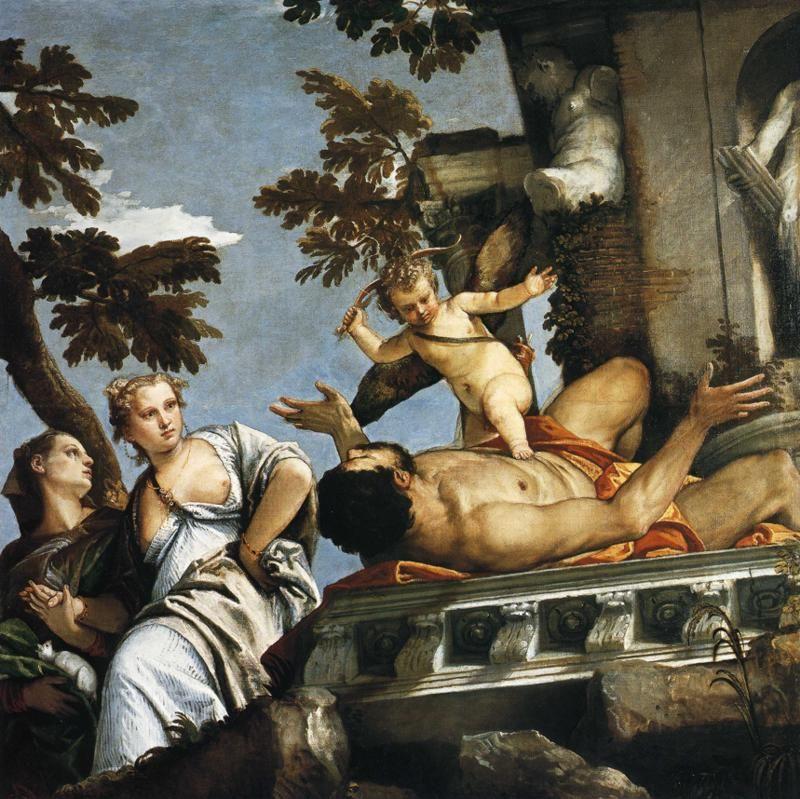 The possibility of disillusion threatening to be a theme of the week: ridiculous as it is a sunny, exhilarating Easter Week. But it did come up in passing when thinking about anticipation yesterday: disappointment is always a possibility i.e. actually seeing things as they are.
The possibility of disillusion threatening to be a theme of the week: ridiculous as it is a sunny, exhilarating Easter Week. But it did come up in passing when thinking about anticipation yesterday: disappointment is always a possibility i.e. actually seeing things as they are.There are - apparently - difficulties in translating 'Disinganno', the title of one of Veronese's Allegories of Love in the National Gallery (which displays it as 'Scorn'). T.J. Clark in the London Review of Books questions this. He says there is more disillusion and dispiriting eye-opening than 'scorn' in 'disinganno'. Love the idea that this is a Baroque term: what exactly does that mean?
"The English Scorn, which has come to be attached to it, is surely wrong, both visually and in terms of philology. Disinganno is a strong Baroque term. It is the moment of being robbed of one's illusions and seeing the actual state of things. There is an element of chastisement and self-chastisement to it, and certainly an element of stripping to the bone. 'Disabuse' is as close as we can come to the idea in English, but the word is too weak, too awkward. In this case, the Italian should stand."Veronese was Ruskin's favourite painter.
Ruskin himself turned to words: word pictures, as he called them - the intent to describe a scene in words as accurately (perhaps more vividly) than by drawing. His description of S. Marco so precise that it awes. His art is just as intricate: he felt he could possess an object in some way by drawing it.
Very interesting ideas, too, on how to travel. As a child, he travelled with his family around Britain and mainland Europe - to the Alps, the medieval cities of France and Italy, in particular Amiens and Venice. They journeyed slowly in a coach, never more than 50 miles a day and every few miles stopped to admire the scenery. Ruskin did this for the rest of his life.
For this reason, he deplored the haste of tourists who cover Europe in a week by train (apparently Thomas Cook first offered this in 1862.)
"No changing of place at a hundred miles an hour will make us one whit stronger, happier, or wiser. There was always more in the world than men could see, walked they ever so slowly; the will see it no better for going fast. The really precious things are thought and sight, not pace. It does a bullet no good to go fast and a man, if he be truly a man, no harm to go slow; for his glory is not at all in going, but in being."
Back to mindfulness.
